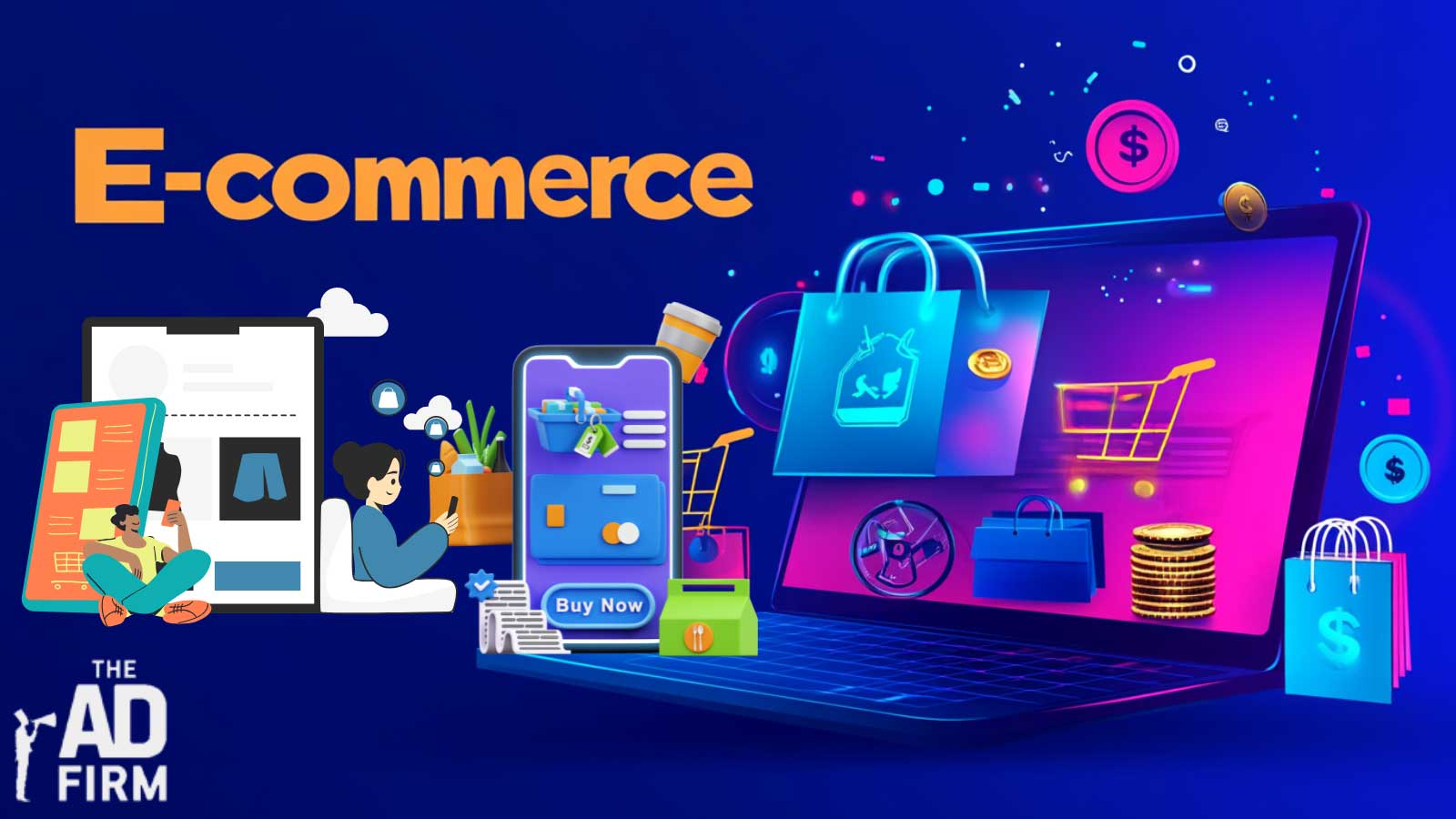E-commerce platforms have transformed significantly in recent years, with new trends, technologies, and user expectations driving innovation. As we head into 2025, businesses must choose platforms that align with their growth strategies, ensuring scalability, usability, and optimized performance. This guide explores the best e-commerce platforms for 2025, the industry’s emerging trends, and how to select the perfect platform for your needs.
Key Trends Shaping E-Commerce Platforms in 2025
E-commerce platforms in 2025 are adapting to the ever-changing demands of businesses and consumers. These trends reshape how online stores operate and compete, from cutting-edge technologies to value-driven innovations. Staying ahead of these developments is essential for businesses aiming to thrive in an increasingly competitive market.
The Rise of AI-Powered Features
Artificial intelligence (AI) is transforming e-commerce by enhancing personalization, optimizing processes, and providing actionable insights. In 2025, AI-powered features will be a luxury and a necessity for platforms aiming to deliver top-tier user experiences.
- Personalization: AI-driven algorithms now analyze browsing habits, purchase history, and customer preferences to recommend products that resonate with individual buyers. These tailored suggestions increase conversion rates and build long-term customer loyalty.
- Automation: AI streamlines operational tasks, reducing manual work through chatbots, predictive analytics, and inventory management systems. For example, chatbots can provide instant responses to customer queries, while predictive analytics help businesses optimize stock levels to meet demand efficiently.
- Data Insights: Platforms leverage AI to identify trends and generate reports that guide marketing strategies. Businesses can fine-tune their offerings by analyzing customer behavior and delivering targeted campaigns.
For businesses prioritizing SEO for ecommerce, AI tools are also optimizing product pages and metadata, improving search visibility and driving organic traffic.
Increased Focus on Sustainability and Green Commerce
Sustainability has shifted from being a buzzword to a driving force in e-commerce. Modern consumers demand ethical practices and eco-conscious options, compelling platforms to prioritize green commerce in their features and operations.
- Eco-Friendly Features: Platforms now include filters for sustainable products or certifications, enabling shoppers to identify eco-conscious choices easily. This fosters trust and attracts a growing segment of environmentally aware consumers.
- Carbon-Neutral Shipping Integrations: Many platforms partner with green logistics providers to minimize environmental impact. Options for carbon-offset shipping are now commonplace, ensuring businesses align with consumer values while reducing their ecological footprint.
- Support for Ethical Businesses: Platforms enable businesses to highlight fair trade, community impact, and social responsibility initiatives. These features allow customers to shop with confidence, knowing their purchases contribute to positive change.
By integrating sustainability into their ecosystems, platforms appeal to socially conscious audiences while differentiating themselves in the market. Companies working with an ecommerce SEO agency can further amplify these features, ensuring eco-friendly products gain visibility and attract the right audience.
Omnichannel Integration and Unified Customer Experience
Omnichannel strategies are a critical focus in 2025, enabling businesses to deliver seamless and unified shopping experiences across all customer touchpoints. By bridging online and offline interactions, businesses can meet customer expectations for convenience, consistency, and personalization.
- Unified Dashboards: Modern e-commerce platforms consolidate data from multiple sources, including sales, inventory, and customer behavior. This centralization streamlines operations, reduces inefficiencies, and provides businesses with a clear view of performance across channels.
- Cross-Platform Selling: Integrations with social media platforms such as Instagram, TikTok, and Facebook have simplified selling directly where customers are most engaged. Social commerce tools help expand reach, boost engagement, and improve conversion rates by meeting customers where they are.
- Consistent Branding: Maintaining uniform visuals, messaging, and tone across all channels strengthens brand trust and loyalty. Customers expect a cohesive experience whether shopping on a website, through social media, or in a physical store, and modern tools ensure branding remains consistent across platforms.
For businesses, partnering with an e-commerce SEO company, omnichannel strategies can be further refined by optimizing content and advertisements for each platform. Tailoring SEO efforts ensures that messaging resonates with target audiences, driving engagement and conversions across all touchpoints. By leveraging these strategies, businesses can build trust, foster loyalty, and create a truly unified customer experience.
Top E-Commerce Platforms Ranked for 2025

Choosing the best e-commerce platform is a crucial decision that directly impacts your business’s growth and customer experience. In 2025, the most popular platforms will continue to dominate the market, each offering unique advantages for different business needs.
-
Shopify:
Shopify remains the go-to platform for businesses of all sizes due to its unparalleled ease of use and extensive app ecosystem. Its intuitive interface allows businesses to get online quickly, while advanced features like SEO ecommerce tools and multi-channel integrations ensure scalability. Shopify is ideal for small- to medium-sized businesses looking for simplicity and the ability to scale.
-
BigCommerce:
BigCommerce stands out for its ability to handle large inventories and complex products, making it a top choice for growing enterprises. Its built-in tools for ecommerce SEO services are particularly robust, enabling businesses to optimize product pages without relying heavily on third-party plugins. It also offers superior multi-channel selling capabilities, including integrations with Amazon, eBay, and social media platforms.
-
WooCommerce:
WooCommerce remains a leading option for businesses already using WordPress. Its open-source nature provides unmatched flexibility, allowing for extensive customization of both design and functionality. While it’s best suited for those with some technical knowledge, WooCommerce’s affordability and plugin ecosystem make it a favorite among small to medium-sized businesses.
-
Magento (Adobe Commerce):
Now operating under Adobe, Magento is designed for large-scale enterprises requiring advanced customization and enterprise-grade features. With tools for ecommerce SEO company strategies and support for multiple storefronts, it’s a powerhouse for global businesses. However, Magento’s complexity may require the expertise of developers or an ecommerce SEO agency to unlock its full potential.
-
Wix:
Wix is ideal for small businesses and beginners who prioritize affordability and design simplicity. Its drag-and-drop builder allows for easy setup, while its basic SEO features help new companies to establish an online presence. Wix is best for small-scale sellers or service providers looking for a straightforward solution to get started quickly.
-
Squarespace:
Known for its stunning design templates, Squarespace is perfect for creatives and small businesses focused on aesthetics. While it offers limited scalability for larger enterprises, its user-friendly tools and reliable support make it an excellent choice for artists, designers, and boutique brands.
-
Amazon (for Marketplace Sellers):
While not a traditional e-commerce platform, Amazon remains a dominant force for online sellers. Its massive audience and trusted infrastructure provide businesses with immediate access to millions of potential customers. Pairing an Amazon store with a standalone website powered by platforms like Shopify can amplify sales and improve brand visibility.
Selecting the right platform is just the beginning. To unlock its full potential, you need an effective marketing strategy. Partnering with a digital marketing agency ensures your platform choice aligns with your business goals. From optimizing your store with professional SEO services to driving traffic with targeted campaigns, the right agency can turn your e-commerce platform into a revenue powerhouse.
Choosing the Right E-Commerce Platform for Your Business in 2025

The success of your e-commerce venture heavily depends on selecting a platform that aligns with your business’s unique requirements. With a range of options available, understanding your size, industry, and future goals ensures that your investment yields the highest returns. Let’s explore how to identify the ideal platform for your needs.
The right e-commerce platform should cater to your business’s size and niche. Each platform has strengths that suit particular industries or operational scales.
- Small BusinessesFor startups and small-scale enterprises, affordability and simplicity are paramount. Platforms like Wix and Shopify are ideal as they offer user-friendly interfaces, minimal setup costs, and templates that allow you to build a professional-looking store without technical expertise. These platforms are perfect for businesses with limited budgets and smaller product catalogs.
- Medium-Sized BusinessesGrowing businesses require more robust solutions that accommodate increasing demands. BigCommerce, for instance, provides advanced analytics, flexible integrations, and scalable features. Its customizable options allow businesses to tailor their stores for improved functionality as they expand. Tools for advanced reporting, tax automation, and API integrations make it an excellent choice for businesses that need operational flexibility.
- Enterprise-Level BusinessesLarge-scale operations demand platforms capable of handling high transaction volumes and intricate workflows. Magento (Adobe Commerce) stands out for its ability to manage multi-storefront operations, complex customizations, and enterprise-level features. BigCommerce also supports enterprise-grade requirements, including extensive integrations and omnichannel capabilities. These platforms cater to businesses requiring comprehensive solutions for global operations and high-volume sales.
- Industry-Specific NeedsSpecific industries like fashion, food, or technology may have unique requirements. For instance, a clothing brand might prioritize visually stunning storefronts, while a niche tech retailer might require advanced categorization features.
Platforms with strong SEO for eCommerce capabilities ensure businesses offering niche products are easily discoverable by their target audience. Choosing a platform that integrates well with SEO tools is critical to success in such cases.
Scalability and Long-Term Growth
E-commerce success is about starting well and growing seamlessly over time. A scalable platform ensures your business can handle increased demand, adopt emerging technologies, and reach new markets without constant overhauls.
- Customizable FeaturesAs your business expands, you may need to add new product categories, implement customer loyalty programs, or optimize checkout experiences. Platforms like Shopify and WooCommerce excel in providing flexibility with apps and plugins to meet evolving needs. Ensure your chosen platform can support additional features without compromising performance.
- Tech AdaptabilityThe pace of technological advancements demands platforms that stay ahead of trends. Look for platforms continuously updated to incorporate technologies like AI-powered personalization, predictive analytics, and voice-search optimization.
- Global ExpansionBusinesses aiming for international growth need platforms offering multi-language and multi-currency support. Shopify and Magento provide features like localized payment gateways, global shipping options, and multilingual storefronts. These tools simplify entering new markets and expanding customer bases across borders.
- Support for Long-Term StrategiesSustained growth requires an ongoing focus on traffic generation and conversions. Collaborating with an eCommerce SEO company ensures your platform remains optimized for search engines, driving consistent visibility and sales. Platforms with strong SEO integrations—like WooCommerce and BigCommerce—offer built-in tools to refine your content, structure, and metadata, enhancing search engine rankings over time.
Integrating SEO and Marketing with E-Commerce Platforms
In 2025, seamless integration of SEO and marketing features into e-commerce platforms is essential for driving traffic, enhancing user experience, and maximizing ROI. Businesses that prioritize these integrations can position themselves ahead of the competition by optimizing visibility and fostering customer engagement.
SEO Features to Look for in 2025
Search engine optimization is fundamental to e-commerce success. While many platforms now offer built-in SEO tools, choosing one with advanced capabilities that align with evolving search engine algorithms and user behavior is vital.
- Schema Markup SupportSchema markup allows search engines to better understand and display your content in search results. This feature enhances visibility through rich snippets like star ratings, product prices, and stock availability, making your listings more appealing to potential customers. Platforms like Shopify and WooCommerce have robust schema markup tools that are easy to implement, ensuring better click-through rates.
- Mobile OptimizationWith mobile devices dominating online traffic, mobile optimization is non-negotiable. Google’s mobile-first indexing prioritizes sites optimized for smaller screens. Platforms like Wix and BigCommerce excel in offering mobile-friendly templates, ensuring that navigation, product views, and checkout processes are smooth across all devices. This feature not only improves user experience but also contributes to higher rankings.
- Page Speed OptimizationA fast-loading website keeps visitors engaged and reduces bounce rates. Platforms like BigCommerce and Shopify lead the way with integrated tools for improving page load times, including image compression, efficient caching, and optimized code delivery. Slow websites often lose customers before checkout, so investing in platforms that prioritize speed is crucial.
Collaborating with professional SEO services ensures these features are fully optimized. Experts can fine-tune your platform’s SEO settings to maximize your site’s visibility and drive consistent organic traffic.
Seamless Marketing Integrations
Marketing is the backbone of any e-commerce strategy, and integrating robust tools into your platform can streamline campaigns and improve customer engagement. The best platforms offer intuitive marketing features that enhance outreach and simplify campaign management.
- Social Media IntegrationSocial media is a powerful channel for driving traffic and increasing conversions. Platforms like Shopify and BigCommerce allow businesses to directly sync their stores with Instagram, Facebook, and TikTok. This integration enables features like shoppable posts and streamlined ad campaigns, helping businesses reach and convert their social audiences.
- Email MarketingPersonalized email campaigns remain among the most effective ways to re-engage customers and nurture leads. Platforms that integrate with tools like Mailchimp or Klaviyo enable businesses to segment audiences, automate email sequences, and track engagement. Email marketing integration is essential for maximizing ROI, whether you’re sending cart abandonment reminders or product recommendations.
- Analytics and ReportingData-driven decisions are the key to successful marketing. Platforms with built-in analytics, such as Magento and Shopify, provide detailed insights into traffic sources, customer behavior, and campaign performance. These tools help businesses refine their strategies, allocate budgets effectively, and achieve measurable results.
These marketing integrations for businesses collaborating with an eCommerce SEO agency create a cohesive strategy that drives consistent growth. Agencies ensure that your platform’s SEO and marketing tools work harmoniously, providing you with a competitive edge in the rapidly evolving digital landscape.
Making the Best Choice for Your E-Commerce Success in 2025
Selecting the right e-commerce platform in 2025 requires careful evaluation of trends, features, and costs. Platforms embracing AI, sustainability, and omnichannel experiences are leading the market, offering businesses tools for growth and innovation.
- Focus on scalability, customization, and marketing integrations.
- Evaluate ROI based on features and pricing structures.
- Prioritize platforms supporting SEO e-commerce strategies for long-term success.
Navigating the complexities of e-commerce platforms can be overwhelming. Partnering with a trusted digital marketing agency ensures that your platform choice aligns with your business goals. At The Ad Firm, we specialize in professional SEO services and e-commerce optimization, helping businesses thrive in competitive markets. Contact The Ad Firm today to unlock your e-commerce potential and dominate the 2025 landscape!









